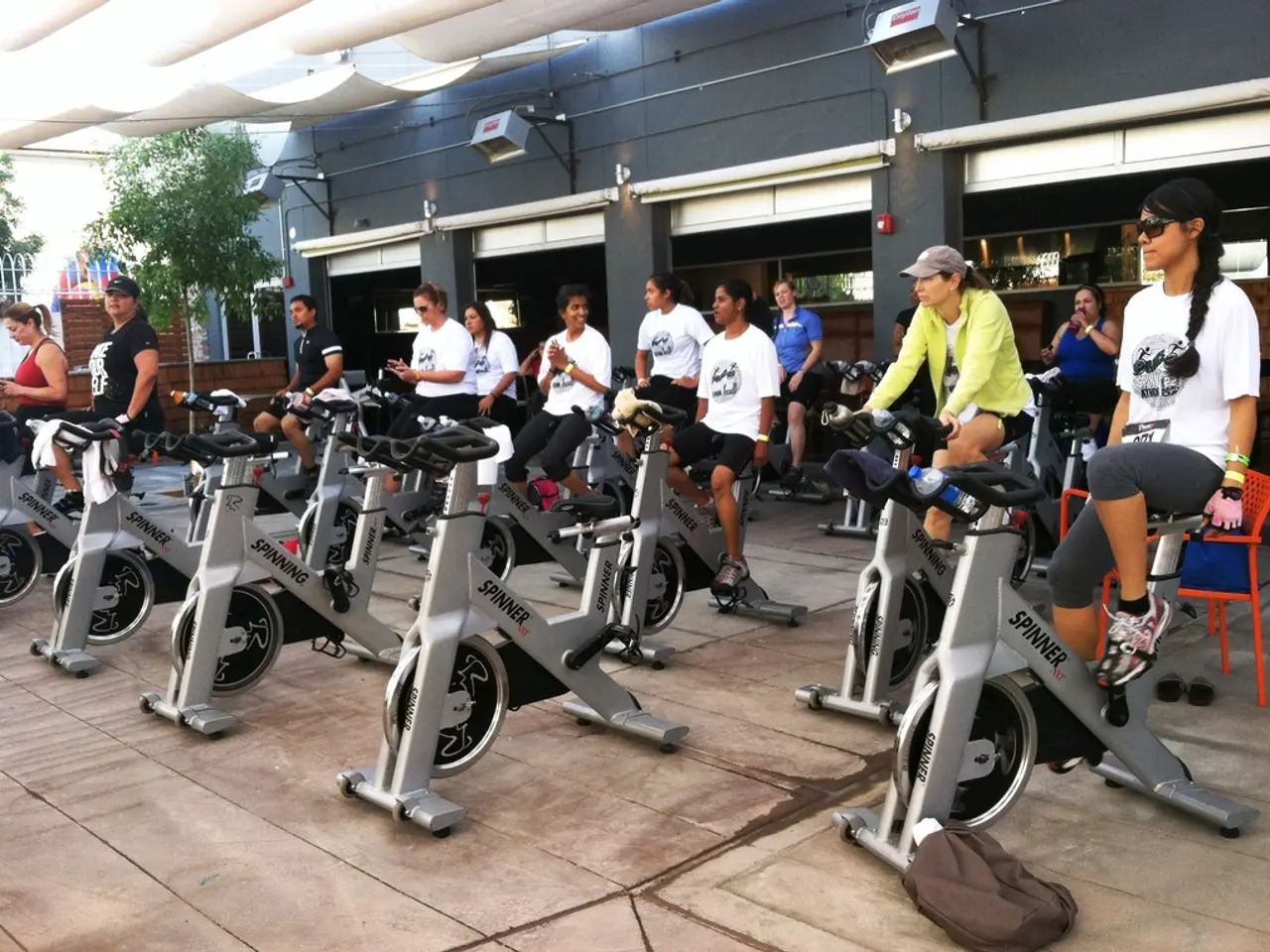Over-50 Fitness Icons Outperforming Most at the Gym with Intense Workouts
Strength Training and High-Intensity Workouts Boost Health and Well-being for Older Adults
A growing number of older adults are embracing strength training and high-intensity workouts as a means to improve their physical and mental health, defying the stereotype that aging equates to decline.
Take Afroditi Lishman, a 52-year-old New Yorker, who despite multiple injuries, adapts her workouts to continue pushing her limits. At Tone House, a gym in New York City known for its brutal conditioning workouts reminiscent of pro football training and bootcamp, Lishman sprints and bear crawls, often passing younger individuals in her class.
For Lishman, the focus has shifted from quantity to quality, opting for one challenging workout instead of multiple less intensive ones. "I've learned that it's better to do one hard workout than three easy ones," she says.
Mickey Crawford, a 61-year-old substance abuse counselor, is another example of an older adult embracing intense workouts. Crawford participates in Tone House workouts, including dragging a 115-pound weighted sled, and finds mental clarity and improved empathy through his workouts.
Resistance training significantly increases muscle strength and muscle size, even in very elderly adults aged 75 and older, and those over 80[1]. It helps prevent and manage sarcopenia (age-related muscle loss) and frailty, conditions linked to increased risk of falls, fractures, and chronic diseases[2][4]. Regular resistance training also improves muscle density, functional capacity, bone density, respiratory muscle strength, and metabolic health, contributing to enhanced physical performance and daily living activities[2][3].
Teresa Liu-Ambrose, a physical therapy professor, has conducted research with older women who already had osteoporosis or osteopenia, and through carefully designed, progressive resistance training, these women improved their function[6]. Liu-Ambrose's research has also shown that socializing during exercise magnifies the benefits[6].
The benefits of resistance training extend beyond physical health, supporting brain health and overall quality of life. Older adults who engage in regular exercise, including high-intensity protocols, can maintain resilience and independence, positively affecting mental well-being[3][2]. Lifting weights can help improve brain function and increase volume[5]. In Liu-Ambrose's Brain Power Study, published in 2010, older women who lifted weights once or twice a week for a year improved their executive function[5].
The Tone House community is an integral part of both Crawford's and Lishman's lives, providing a sense of belonging across age, ability, and generation. Lishman will be attending five different weddings this year, all of which are of Tone House community members.
Aging isn't solely about decline, according to Liu-Ambrose. "Getting stronger after 50 is a practice, and mindset plays a significant role in one's ability to do so," she says. Crawford, despite hating running in the past, now runs three miles after work and is considering running the New York Marathon in 2026.
Crawford and Lishman are not buying into the narrative of anti-aging culture, instead choosing to lift heavier, run farther, and think more clearly. Lishman considers her workouts as therapy, boosting her confidence mentally. "My workouts are my therapy," she says. "They help me feel strong, both physically and mentally."
References:
- Resistance Training and Older Adults
- Resistance Training for Older Adults: Prescription and Program Design
- Resistance Training in Older Adults: A Systematic Review and Meta-analysis
- Resistance Training in Older Adults: An Update on the Evidence for Health and Functional Benefits
- The Effects of Resistance Training on Brain Structure and Function in Older Adults: A Systematic Review and Meta-analysis
- Social Engagement and Exercise Improve Physical Function in Older Adults: A Systematic Review and Meta-analysis
- Embracing strength training and high-intensity workouts helps older adults like Afroditi Lishman and Mickey Crawford enhance not just their physical health but also their mental well-being.
- Teresa Liu-Ambrose's research reveals that regular resistance training can boost brain health in older adults, contributing to improved executive function, and even increasing brain volume.
- For individuals like Lishman and Crawford, workout routines serve as more than just physical exercises; they act as therapeutic tools for improving both physical and mental strength.




